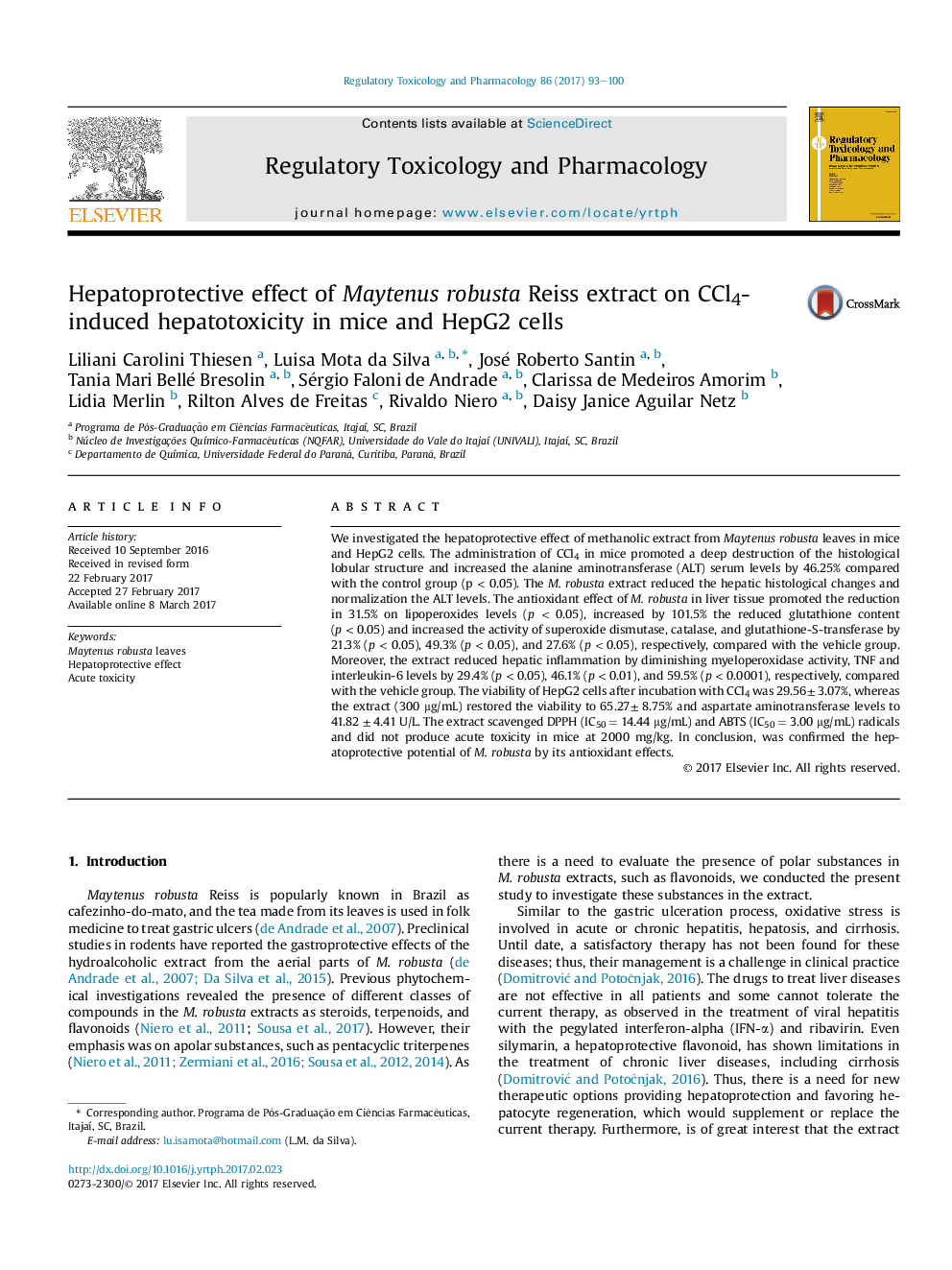| Article ID | Journal | Published Year | Pages | File Type |
|---|---|---|---|---|
| 5561254 | Regulatory Toxicology and Pharmacology | 2017 | 8 Pages |
â¢Protective effect of Maytenus robusta extract on HepG2 cells and mice exposed to CCl4.â¢Antioxidant and anti-inflammatory mechanisms underlying hepatoprotective effect of Maytenus robusta extract.â¢Absence of toxicity at acute doses of Maytenus robusta extract.
We investigated the hepatoprotective effect of methanolic extract from Maytenus robusta leaves in mice and HepG2 cells. The administration of CCl4 in mice promoted a deep destruction of the histological lobular structure and increased the alanine aminotransferase (ALT) serum levels by 46.25% compared with the control group (p < 0.05). The M. robusta extract reduced the hepatic histological changes and normalization the ALT levels. The antioxidant effect of M. robusta in liver tissue promoted the reduction in 31.5% on lipoperoxides levels (p < 0.05), increased by 101.5% the reduced glutathione content (p < 0.05) and increased the activity of superoxide dismutase, catalase, and glutathione-S-transferase by 21.3% (p < 0.05), 49.3% (p < 0.05), and 27.6% (p < 0.05), respectively, compared with the vehicle group. Moreover, the extract reduced hepatic inflammation by diminishing myeloperoxidase activity, TNF and interleukin-6 levels by 29.4% (p < 0.05), 46.1% (p < 0.01), and 59.5% (p < 0.0001), respectively, compared with the vehicle group. The viability of HepG2 cells after incubation with CCl4 was 29.56± 3.07%, whereas the extract (300 μg/mL) restored the viability to 65.27± 8.75% and aspartate aminotransferase levels to 41.82 ± 4.41 U/L. The extract scavenged DPPH (IC50 = 14.44 μg/mL) and ABTS (IC50 = 3.00 μg/mL) radicals and did not produce acute toxicity in mice at 2000 mg/kg. In conclusion, was confirmed the hepatoprotective potential of M. robusta by its antioxidant effects.
